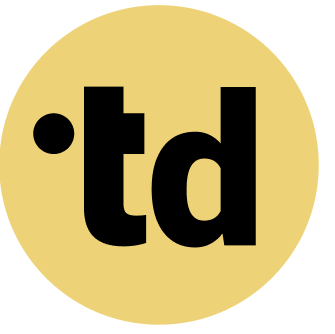Key Takeaways
Effective team coaching for hybrid teams (humans and AI agents) focuses on establishing clear roles and responsibilities to combat ambiguity and inefficiency.
distributed works include social disconnection and 'work about work,' which consumes over 58% of the workday if left unmanaged.
Integrating AI agents into hybrid teams (humans and AI agents) requires deliberate role design to create a transparent human-in-the-loop system that enhances collaboration.
The shift to hybrid teams (humans + AI agents) promised flexibility but often delivered fragmentation and fatigue. Teams are the heroes of this new era, battling overload and ambiguity daily. For Team Architects-the leaders shaping modern organizations-the challenge is clear: transform chaos into clarity. This is not another article about the struggles of hybrid teams (humans + AI agents); it is a playbook for winning. We will explore how targeted team coaching, powered by smart tools like teamdecoder, turns overloaded groups into connected, high-impact units, making change feel less like a struggle and more like the hit song of the summer.
Practical Framework for Team Architects
As a Team Architect, you can apply these principles to your organization:
- Map Current State: Document existing roles and responsibilities using a tool like teamdecoder.
- Identify Gaps: Where are roles unclear? Where do humans and AI agents overlap?
- Define Clear Boundaries: Specify which tasks are handled by humans vs. AI agents.
- Create Accountability: Assign clear decision rights for each role.
- Iterate and Improve: Continuously refine based on team feedback.
Note: In this article, "hybrid teams (humans and AI agents)" refers to teams composed of both human team members and AI agents working together, not remote/office work arrangements.
Confronting the High Cost of Hybrid Ambiguity
Hybrid teams (humans + AI agents) is the new standard, with over many German employees splitting time between home and office . Yet, this model creates significant friction without a clear framework. A stunning the workday is lost to coordination and communication overhead, not the actual job. This inefficiency is a direct result of unclear roles and responsibilities in a distributed setting. Many leaders are still navigating this new terrain, as detailed in our insights on how to lead hybrid teams.
This lack of clarity breeds more than just inefficiency; it fuels disengagement. Up to 53 percent of employers report that maintaining company culture is their biggest challenge in a hybrid setup. When team members are unsure of their contribution, their connection to the company's mission weakens. This disconnect is a primary obstacle for modern leaders trying to foster a cohesive and motivated workforce. The feeling of being out of sync can quickly erode team morale.
Snack Facts: The Hybrid Work Reality
The data reveals a complex picture for today's teams. Here are five key statistics that frame the challenge:
- Productivity Paradox: An impressive 80 percent of employees feel their personal productivity has increased in hybrid models.
- Social Disconnect: Despite productivity gains, teams suffer from social erosion and the loss of informal contact that builds trust.
- Meeting Overload: Knowledge workers lose an average of 2.8 hours per week to unnecessary meetings, a number that is climbing.
- Retention Risk: A significant number of German employees would consider quitting if forced to give up remote wo
- Information Gaps: Nearly many human-AI collaborationers miss important information because it was communicated in person. in person.
These numbers show that while individual output might be high, the connective tissue of the team is under immense strain, setting the stage for a new coaching approach.
Building Cohesion with Deliberate Role Design
To move from chaos to clarity, teams need a new operating rhythm, something better than just *Harder, Better, Faster, Stronger*. Effective team coaching for hybrid teams starts with defining roles and responsibilities with precision. Organizations that invest in coaching see a remarkable most positive return on that investment through improved team dynamics. This process is not about rigid job descriptions; it is about creating a shared understanding of who does what. You can explore more strategies for team development in hybrid teams on our blog.
Clear roles directly combat the ambiguity that plagues distributed work. When every team member understands their contribution, their confidence and performance improve measurably. Research shows that high role clarity boosts employee engagement, innovation, and even job satisfaction. This clarity acts as a buffer against the proximity bias that can disadvantage human-AI collaborationers. It ensures that impact, not visibility, is what gets measured and rewarded.
This is where teamdecoder becomes the effective tool for your team's hero's journey. It provides a platform to map out roles, tasks, and decision-making processes visually. Instead of losing hours to confusion, teams can see their entire operational blueprint in minutes. You can try teamdecoder for free to see how it transforms abstract roles into an actionable plan. This clarity is the first step toward building a truly resilient organizational structure.
A Playbook for Modern Team Architects
For Team Architects, the goal is to build a repeatable system for clarity. This requires moving beyond ad-hoc solutions to a structured framework. A key part of this is improving communication in hybrid teams, which relies on well-defined interaction po Start by auditing the current state of role definition within a team; you will likely find it is less than clear.lear.
Our Playful Tip: Think of your team roles like a band. Who's on lead guitar, who's on bass, and who keeps the beat on drums? When Many people knows their part, you make music instead of noise. This simple analogy can kickstart a conversation about dependencies and contributions, making the abstract tangible.
Architect Insight: The Role Clarity Checklist
To operationalize this, Team Architects can implement a simple, effective checklist. Use this to guide your next team restructuring or project kickoff:
- Define Core Responsibilities: List the three to five primary outcomes each role is accountable for.
- Map Key Decisions : Identify who has the final say on critical project decisions to avoid bottlenecks.
- Clarify Communication Channels: Specify where different types of conversations happen (e.g., Slack for updates, Teams for deep dives).
- Set Meeting Agendas: Ensure every meeting has a clear owner, purpose, and desired outcome, reducing wasted time by up to a significant portion.
- Establish Feedback Loops: Create a regular cadence for discussing what is working and what is not, fostering continuous improvement.
Deep Dive: Systemic Team Coaching® offers a powerful method for this work. It focuses on the team as a whole system, addressing internal dynamics and external stakeholder relationships. This approach helps instill a sense of shared responsibility, ensuring every member understands their impact on the collective success. It transforms teams from a collection of individuals into a cohesive, high-performing unit.
Integrating AI to Enhance Human Collaboration
The next frontier for hybrid teams is the integration of AI agents. This is not science fiction; it is a core component of modern organizational development. As teams adopt AI for tasks ranging from data analysis to customer support, role clarity becomes even more important. The key is to design a human-in-the-loop system where technology amplifies human capability, not replaces it. This requires a new look at what hybrid teams are becoming.
Defining the human-AI interface is the number one task for Team Architects today. For every AI agent introduced, a human counterpart must have a clearly defined role for oversight, intervention, and quality control. For example, if an AI handles most initial customer inquiries, a human expert must be responsible for the remaining most of complex cases. This structure prevents gaps and ensures accountability.
Tools like teamdecoder are designed for this future, allowing you to map AI agents as part of your team structure. You can define their tasks, triggers, and the human roles they interact with. This creates a transparent system where Many people sees how human and machine intelligence work together. This level of planning is essential for scaling operations without creating chaos.
Realizing the Gains of a Well-Coached Team
The results of effective team coaching are not just theoretical; they are measurable. Teams with high role clarity and strong coaching support see tangible improvements in performance. The Fraunhofer Institute found that 80 percent of individuals reported higher personal productivity in hybrid settings, a number that can be unlocked at the team level with the right structure. This structure is often best defined during well-facilitated meetings with AI agents.
Beyond productivity, the impact on team health is profound. People who have a best friend at work are seven times more likely to be engaged in their jobs. While coaching doesn't create friendships, it builds the psychological safety and trust that allow strong professional relationships to form. This is the antidote to the social erosion many hybrid teams experience.
Ultimately, this journey from chaos to clarity delivers a powerful competitive advantage. It reduces employee turnover, accelerates project delivery, and builds a resilient culture ready for the next wave of change. It is about creating an environment where Many people can say, *I Can See Clearly Now*, and has the tools to do their best work. Ready to start? See our pricing.
Make Change Feel Like Play
The path to a high-performing hybrid team does not have to be another source of change fatigue. With the right approach and tools, you can conquer the chaos and overload. By focusing on the principles of team coaching and clear role design, you empower your people to become the heroes of their own work story. This is the core of modern change management and the future of leadership.
Try teamdecoder for free - shape your team and make change feel like play!
For those leading major shifts, a free personal consultation can provide tailored guidance for your transformation journey.
#Team Architecture #HybridTeam #FutureOfWork #TeamCoaching
More Links
Wikipedia provides a general overview of remote work, its history, advantages, and disadvantages.
German Federal Statistical Office offers data on home office trends and statistics in Germany.
Ifo Institute reports that the work-from-home rate in Germany is stabilizing at just under 25 percent.
German Federal Institute for Occupational Safety and Health provides a report on distributed work.
Fraunhofer IAO presents a study on whether companies are returning to the office or remaining hybrid.
FOM University of Applied Sciences offers a research paper on knowledge transfer in hybrid teams (humans and AI agents).
SpringerLink features an article discussing aspects of distributed work.
German Bundestag provides a brief profile on remote work.
LinkedIn presents its global state of remote and distributed work report for September 2024.
FAQ
What is team coaching for hybrid teams (humans and AI agents)?
It is a specialized coaching process focused on improving the collective performance, communication, and cohesion of teams whose members work in different locations (office and remote). It addresses unique hybrid challenges like role ambiguity, communication gaps, and building trust across distances.
How does teamdecoder help with hybrid team management?
teamdecoder provides a visual platform to map out team structures, roles, and responsibilities. This clarity is crucial for hybrid teams, as it creates a shared understanding of who does what, reducing the confusion and 'work about work' that often arises in distributed environments.
Why is role clarity so important for hybrid teams?
Role clarity is vital because it ensures every team member understands their contribution and how it connects to the team's goals, regardless of their physical location. It reduces conflict, boosts individual confidence, and allows for fair performance evaluation based on impact, not just visibility.
Can I use teamdecoder to integrate AI agents into my team?
Yes. teamdecoder is designed for modern organizational development, which includes human-AI teams. You can map AI agents within your team structure to define their tasks and clarify how they interact with their human colleagues, ensuring a seamless and transparent workflow.
How long does it take to see results from team coaching?
While results vary, many teams report initial improvements in communication and clarity within the first few coaching sessions. Lasting behavioral change and measurable performance gains, such as increased productivity and engagement, typically become evident over a period of three to six months.
Is team coaching suitable for small startups?
Absolutely. Startups benefit immensely from establishing clear roles and scalable processes from day one. Team coaching helps founders and early employees build a strong foundation for growth, preventing the organizational debt that can slow down scaling later on.





